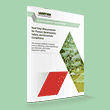-
Biomass availability and sector competition
The present version of the report is a draft sent out for review by selected stakeholders. Subject to exposing our findings to review comments during a webinar June 2nd 2022, the report will be prepared as a final version. The aims of this project have been to: - Provide an overview of recent scientific consensus on future potentials of biomass that are estimated to be sustainably available for non-food/feed purposes, i.e. as feedstock for energy, fuels and materials/chemicals - ...
-
Maritime Decarbonization Strategy 2022
The Maritime Decarbonization Strategy reviews the progress of the transition in the shipping sector so far and outlines the actions the industry must take to move closer to the Paris 1.5°C trajectory. The conclusions and recommendations presented in the report are based on analyses and modelling work done by the Mærsk Mc-Kinney Møller Centerfor Zero Carbon Shipping, outcomes from workshops with center partners and other stakeholders across the maritime industry, and the results ...
-
Net-zero emissions: glossary of terms
Since the Paris Agreement, IPIECA has continued to work on the topic of low-emissions pathways highlighting the fundamental role and contribution of the oil and gas industry in addressing the challenge of a transition to a low-emissions future. The concept of net-zero emissions is a key element of the discussion around low-emission pathways and the energy transition required to meet the aims of the Paris Agreement. This glossary was developed to support the oil and gas industry ...
-
OMC Med Energy 2025 Call For papers
We all know that the energy sector is the source of around three-quarters of greenhouse gas emissions today, that’s why the sector holds the key to averting the worst effects of climate change. Why presenting at OMC Med Energy Conference: - OMC Med Energy provides the ideal platform for experts eager to exchange their views and contribute to speed up and accomplish energy transition. - Long term visibility: all selected papers are published in the Conference proceedings, ...
-
OMC Med Energy 2025 Exhibition Brochure
OMC Med Energy is the premier event focused on the entire energy value chain that brings together key stakeholders and industry leaders from the Mediterranean regions. For nearly three decades, OMC Med Energy has stood as the unrivaled platform driving the energy innovation through cutting-edge technology and it is driving now the change to energy transition of the Mediterranean. !is premier industry event has been instrumental in propelling countless companies to unprecedented ...
-
Post Show Report - OMC Med Energy 2023
Wrapping up the success of OMC Med Energy 2023. OMC celebrates a major success in its thirtieth year OMC MED Energy 2023 closed on October 26th, marking a significant milestone in its thirtieth year. !e event’s success is evident in the numbers: over 14,000 attendees, more than 400 booths from 27 countries, and delegations from Cyprus, Lebanon, Algeria, Egypt, Mozambique, Iran, Malta, and Libya. Worldwide leading company experts, authorities and associations, including over ...
-
Short-haul flying and sustainable connectivity
The emergence of global targets to decarbonise have brought with them increased scrutiny of transport and of aviation in particular. One proposed means of reducing greenhouse gas emissions from transport is a modal shift from air to rail. This has been encouraged both through investment in rail infrastructure, and by bans and taxes on short-haul air journeys. Oxera has been commissioned to assess the environmental impacts of air and rail and the factors that need to be taken ...
-
The crucial role of low-carbon hydrogen production to achieve Europe’s climate ambition
Hydrogen has emerged as a central narrative of the European Green Deal. With the legally-binding objective of climate neutrality by 2050, set by the European Climate Law and the increased climate target for 2030, the need to speed up the efforts towards climate change mitigation is evident. The EU is therefore relying on hydrogen as a way to decarbonise energy-intensive industries, energy and transport sectors. The EU hydrogen strategy, published in July 2020, highlights that ...
LITERATURE
SPONSORS



















